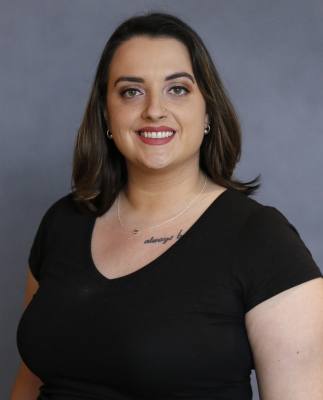Clear Creek ISD will not bring students back to campuses Aug. 18, but will instead gradually phase in its brick and mortar learners from Aug. 31 to Sept. 8 while Clear Connections students begin in late August.
The schedule change comes after lengthy debate from the board of trustees during a July 20 special meeting, where the board also voted to approve a contract increase, budget increases and capital project fund usage of more than $8 million in total for coronavirus-related expenditures.
Several parents and teachers spoke at the meeting, giving mixed feedback about the timing and safety of any in-person school start date. Teachers pushed for brick and mortar education, emphasizing the importance of in-person learning for authentic connections, while concerned parents felt a delayed in-person start date was necessary to properly implement health and safety measures.
Holly Hughes, assistant superintendent of elementary education, said during the meeting that regardless of start date, the beginning of the year will require a lot of adjustments.
“The first days of any school year take a little ramping up as far as getting the processes and procedures out; that will only be heightened this year,” she said. “That’s going to be a process for us.”
Schedule changes
The week of Aug. 18 will be used for professional development for staff, including training on safety protocols; engagement and relationship building; technology; the school-to-home model, which will be used in the event of a heightened COVID-19 outbreak; and Clear Connections training. On Aug. 24, all students will begin the school year online, having met their teachers on Aug. 20 or 21, administrators said.
Pre-kindergarteners, kindergarteners, sixth graders, ninth graders and students in special education self-contained classrooms will start their brick and mortar education Aug. 31, if this is the option they are choosing for the first grading period. This gives staff time to train small groups of students on safety protocols and ease the transition into a new year, according to slides presented by Superintendent Greg Smith at the meeting.
All students who selected brick and mortar education will be on campus starting the week of Sept. 8. Any student who does not enroll in Clear Connections by the deadline—which was Aug. 4, but will likely now be pushed back—will be enrolled in brick and mortar by default, administrators said.
Texas school districts have the option of offering online-only classes for the first four weeks of the 2020-21 school year, according to additional guidance released by the Texas Education Agency on July 17. Harris County Judge Lina Hidalgo and Dr. Umair Shah, executive director of Harris County Public Health, said in a letter to school district superintendents July 20 that, due to the pervasiveness of the coronavirus pandemic in Harris County, they believe local schools should start the year off virtually.
Schools should provide remote instruction for pre-K through 12th-grade students until at least October, according to the letter. Administrators said at the meeting this is not what CCISD plans to do.
Philip Kaiser, Galveston County’s local health authority, supported the district’s transition plan and agreed with the idea of bringing in a smaller number of students at first as long as there were face coverings being used and there is a general downward trend in coronavirus cases, Smith said during the meeting.
“It’s planning for the end in mind, planning well, and making sure we launch with the articulated success we intended,” Hughes said of the revised reopening plan.
COVID-19 spending: Clear Connections staff, laptops, emergency purchases
More than $771,000 was approved as a budget addition for the 2020-21 school year, which will be put toward hiring the appropriate staff for Clear Connections students. Casey O’Pry, assistant superintendent of human resources, said the funds will go toward hiring a full-time counselor, a full-time data specialist and full-time coordinators for the elementary, middle and high school Clear Connections students. The goal is to properly equip Clear Connections staff to best serve the social and emotional needs of the students, just as if they were attending school in person, he said.
A resolution was also approved that “delegates to the superintendent the authority to procure, negotiate and execute emergency contracts” for goods and services necessary to protect the health and safety of CCISD students, staff and community members. The resolution requires Smith to inform the board of all emergency purchases made under this delegation of authority at the next regular board meeting after purchases have been made.
After some debate, a $500,000 cap was added to the resolution; any purchase over this amount would need to go to the board for approval beforehand. Administrators said, based on existing framework, relatively few purchases would actually need to go through this process. Some examples of emergency purchases would include personal protective equipment, hiring a cleaning crew as needed to abide by health regulations, or computer hardware or software for Clear Connections.
The board approved the use of $5 million worth of capital funds as well as a contract increase of $2.5 million to purchase 12,000 laptops for at-home use with K-3 students. Three quotes were received from vendors, with the lowest cost being $4.6 million, to purchase the laptops.
Delivery of devices to the district is expected by late September. Administrators said they would prioritize getting laptops to students who do not have their own at home based on survey responses. According to a survey conducted in the spring, nearly 1,200 K-3 students did not have their own laptops with which to do schoolwork, Chief Technology Officer Robery Bayard said.
Any of the 12,000 laptops not being used would go into a pool, to be given out if a student needs his or her laptop repaired so that no student is ever without a device. Students also have the option of using their own personal laptops, and administrators encouraged any families making that choice to return their school-issued device as soon as possible.
“We’re trying to close that barrier for kids,” Bayard said of the digital divide, adding that the best learning and interactions occur in real time with the use of the laptops. “The ability to have synchronous, authentic connections ... it makes a huge difference in their learning.”
Although the contract increase was approved, trustee Scott Bowen voiced concern over giving the OK for spending of this magnitude, referring to it as “government spending gone wrong.” He said he believes the district will likely be in a tight financial position in the coming months, so more research needs to be done into how much money is really necessary to spend.
“I think it is very likely that six months from now, we’re going to look back and regret this,” he said. “I hope I’m wrong, ... but I just don’t think that’s a chance we can take without doing some more due diligence.”
Other trustees and Smith said that approving both the contract increase and the spending of capital funds is necessary to promote authentic learning. Bayard said there is a possibility some of the money can be reimbursed, but there is no guarantee.
“I know it gets messy at times, but rest assured that we would use these tools appropriately. ... Nothing’s going to sit in a closet unused,” Smith said.





